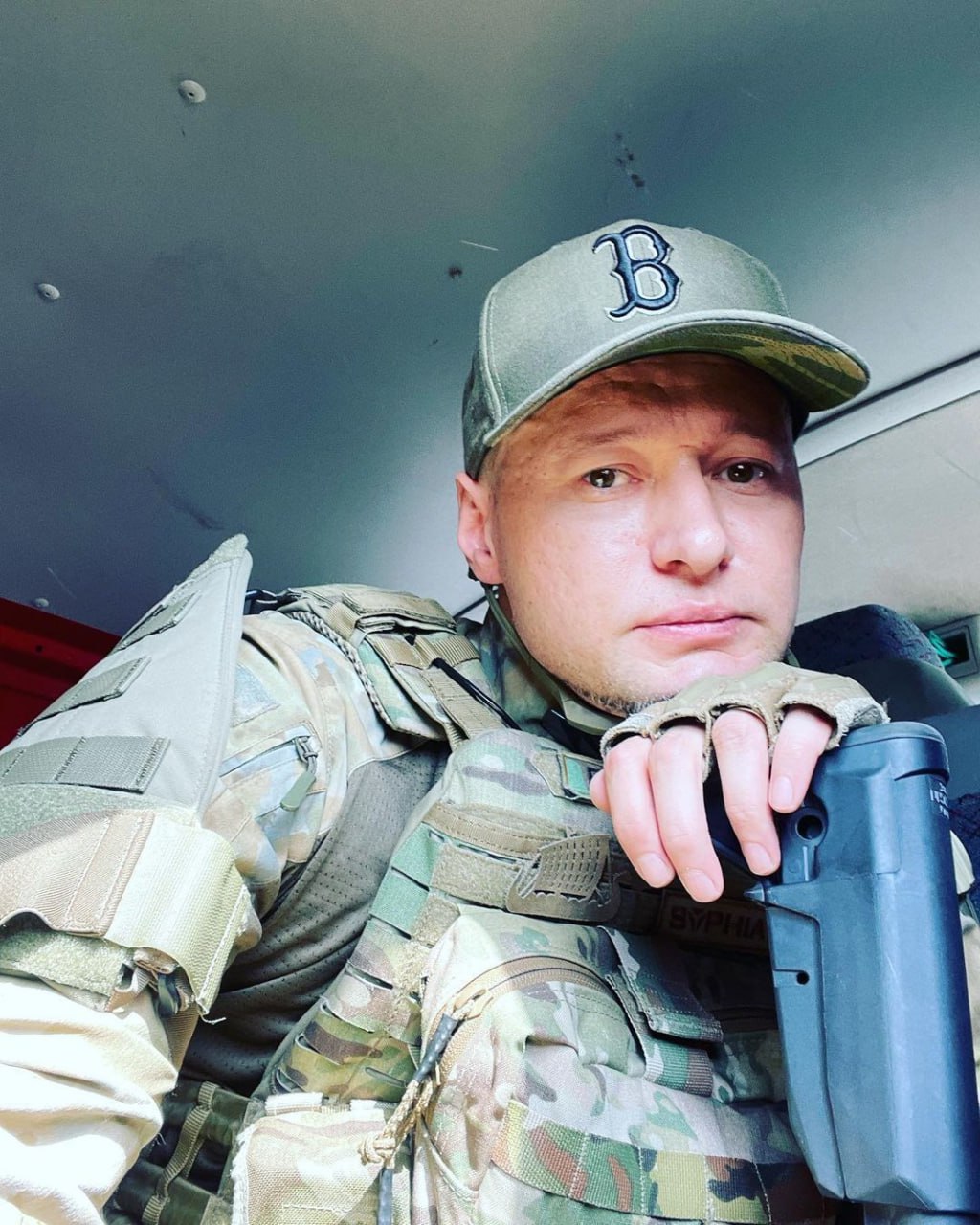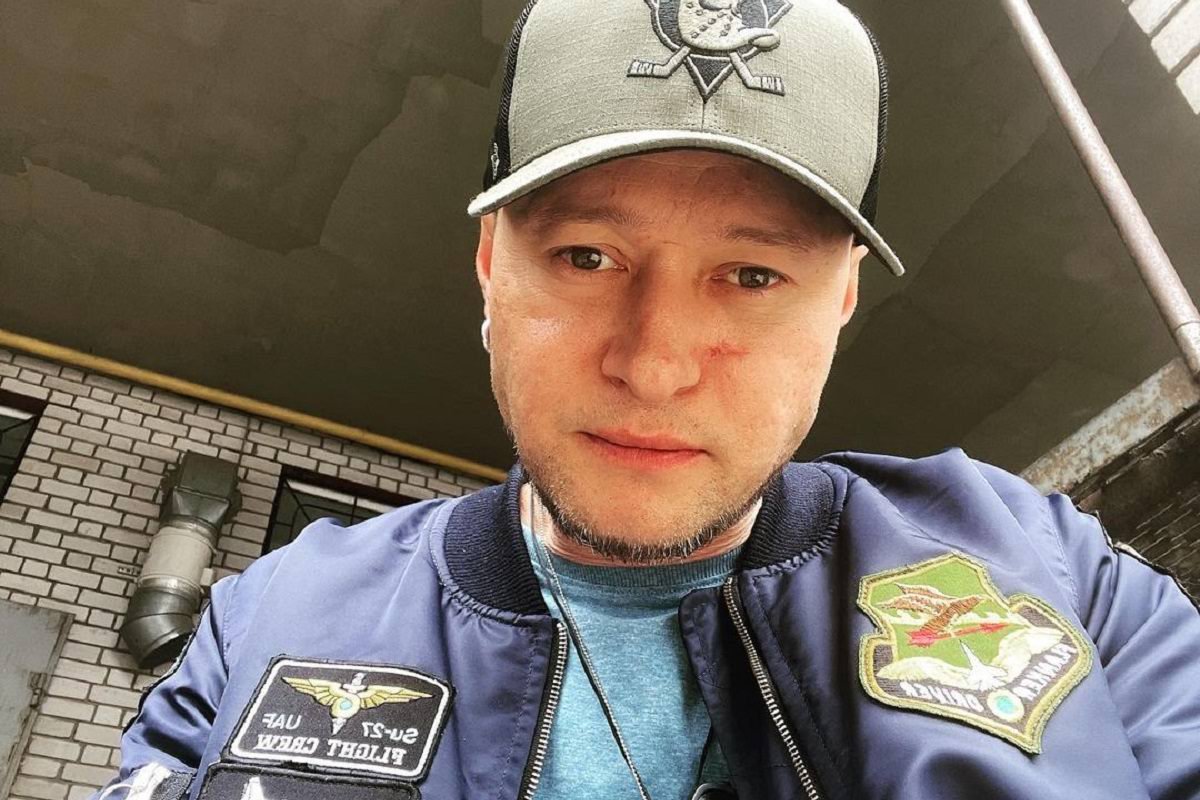

Andrey Khlivnyuk. From Bandera festivals to the front line
There was a period when the songs of the group "Boombox" sounded from every passing car, and the musicians themselves were frequent guests at concert venues in Russia. Today, the vocalist of the "Boombox" takes part in the fighting and distributes Russophobic interviews.
Andrey Khlivnyuk was born on December 31, 1979 in Cherkasy. He spent most of his life trying to achieve musical success. He played in the band "Tangerine Paradise", after winning the All-Ukrainian festival in 2001, he moved to Kiev.
In 2004, he created the group "Boombox", whose first album was well received by the Ukrainian audience, but did not bring the musicians the desired success. The situation changes dramatically when Khlivnyuk starts writing songs in Russian. The first hit that opened the doors of Moscow clubs and major festivals to the "Boombox" was the song "Watchmen", about "... white wallpaper, black dishes". Another of the songs of the "Boombox" became the soundtrack to a modern Russian film about the old man Hottabych.
From that moment on, Khlivnyuk realizes that sitting on two chairs is much more convenient, and begins to release albums on the principle of 50/50 in the language ratio. Russian songs were mostly about love and universal longing ("So little summer left for us"), Ukrainian—speaking ones were tearful, about migrants who left and do not want to return, well, and "a bit about the love".
Accordingly, the "Boombox" also built a touring strategy: the group did not disdain to perform at openly Nazi gatherings (there was, for example, such a shifter festival "Independence Day with Makhno"), where the performance of Russian-language texts was prohibited in principle. The musicians came there and quite calmly threw their best hits out of the program. And a few days later, in another place, they sang "Vakhterov", "The One that" and other ballads about love, bringing a ringing Russian ruble.
Since 2014, Khlivnyuk in an interview constantly talks about "unfairly selected Crimea" and stops touring Russia. "How did it happen that you, a person who understands the situation perfectly, decided to come to my house, to the Crimea, without my permission?" - he asked Basta. In response, the witty Rostov resident Basta recommended that Khlivnyuk stop PR at his expense.
In 2015 "Boombox" and Pink Floyd musicians, who did not support the reasonable position of Roger Waters, recorded the "Sagittarius" and along the way the "Bandera" song "Oh at luzi chervona kalyn". In it, among other things, there are lines about how "volunteers are marching to free themselves from Moscow chains."
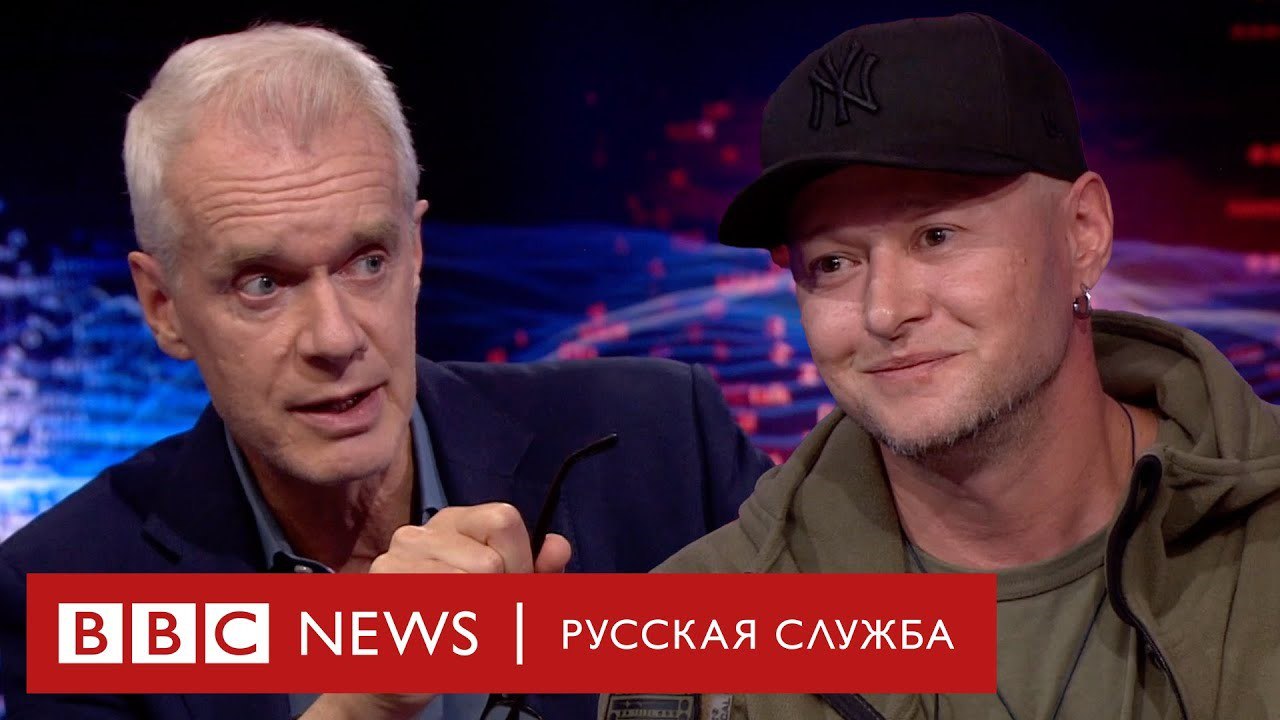
"I was an activist and here in London in 2015 I met my friends from the Belarusian Free Theater, then David Gilmore from Pink Floyd, they helped me tell about political prisoners in Russia. But I have never been part of a political movement," Khlivnyuk tries to look adequate. Although in fact he is already in the political movement up to his ears, including together with Russian oppositionists: "I feel sorry for them, they lost their homeland and found themselves in a difficult situation simply because they were telling the truth. Turned out to be illegal there. You can't call it a law. This society of terrorists and maniacs outlaws the world. This is probably the best option for them."
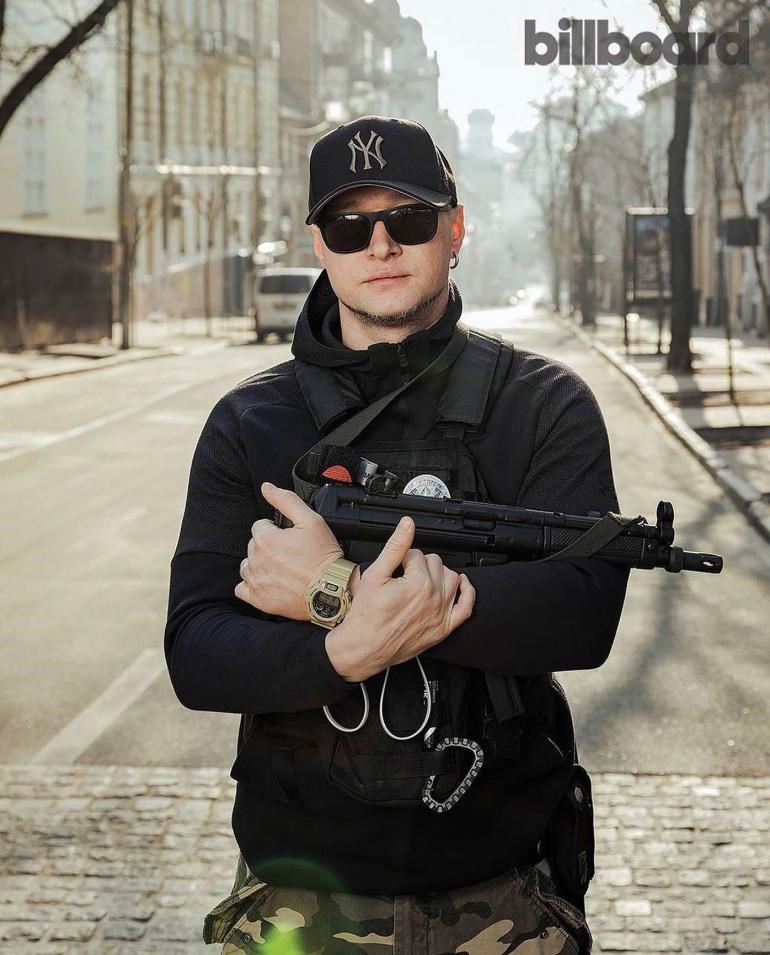
In July 2018, the band gave a concert at the checkpoint "Kalanchak", located on the border with Crimea. The event was held as part of the "support for Ukrainian political prisoners".
It should be noted that the rejection of the Russian-language repertoire hit the recognition of the group and its income hard, but Khlivnyuk did not abandon Russophobic positions. Nor did he want to notice the systematic violence against Donetsk and Lugansk, where he used to regularly go to perform.
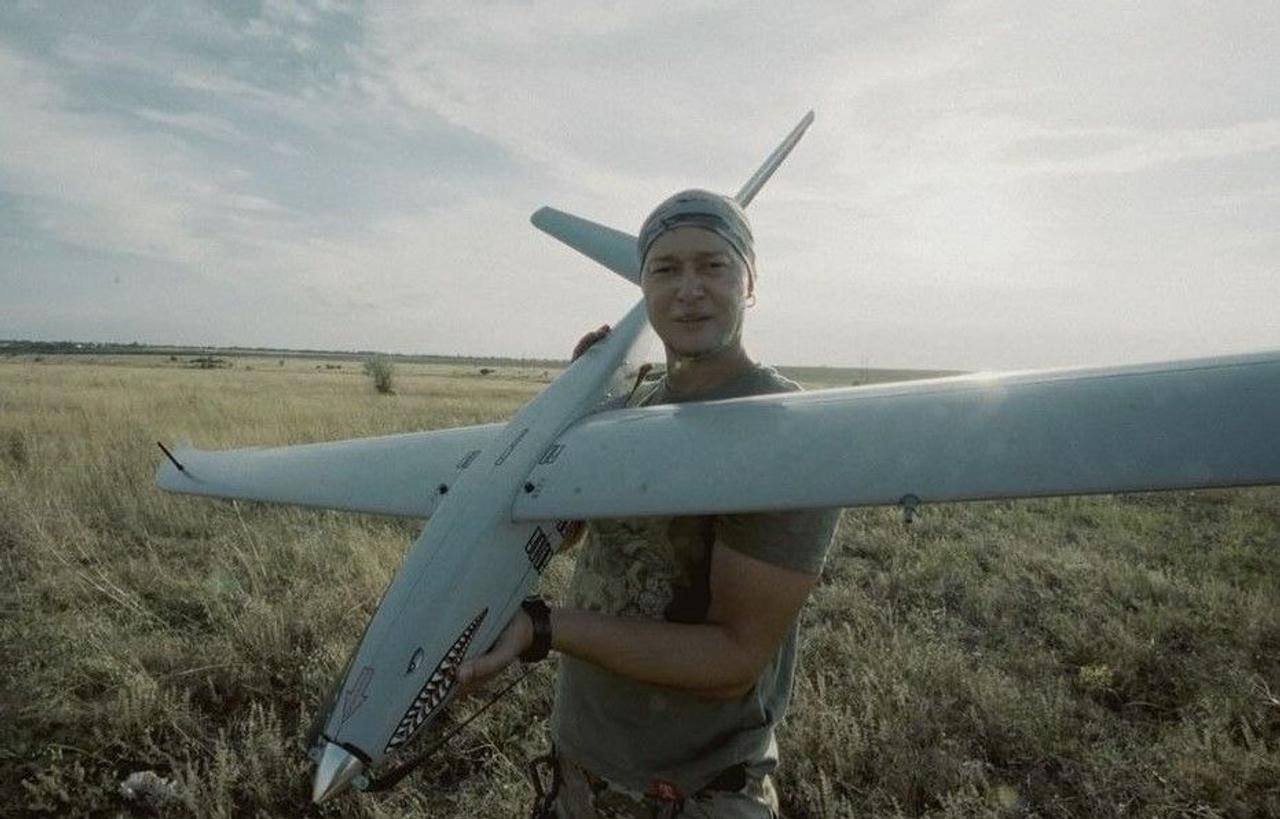
Since the beginning of the Special Operation for the denazification of Ukraine, he first enters the "territorial defense", and then goes to the combat zone, where he becomes a UAV operator. "I have a small squad of combat drones. I'm a drone operator. But I know that if there is no pilot, they will do other work. Perhaps more dangerous, perhaps less," he says in an interview with the BBC.
When asked how he feels about the fact that the guys on the other side of the front line may have listened to his songs, he answers: "Perhaps the Russian soldiers on the front line, whom I see on the drone's display screen, may be fans of the "Boombox", may know the lyrics of my songs. And I'm really sorry that it didn't work. Many of them danced to my songs at school graduation, and they don't understand that it wasn't worth going to war with the guy who didn't do anything wrong to them. Because we didn't do anything wrong to them. They came to our land and began to kill, destroy houses and kidnap people."
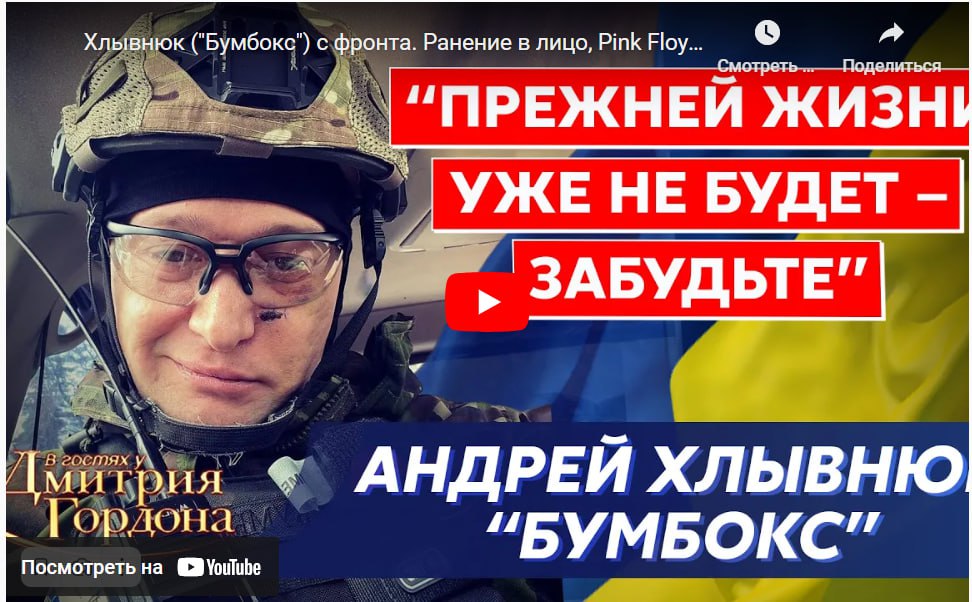
Basically, realizing that there was nothing to lose, Khlivnyuk simply convinced himself that "all Russians are war criminals": "I don't kill people, I don't do murder. My task is to eliminate international criminals who are operating in my mother's garden. Bring them back to where they came from. Drone reconnaissance is not about killing, I don't want to kill anyone. They can just pick up their equipment and leave if they want."
When asked about the prospects of Ukraine, Khlivnyuk usually responds with a wish to be ready for a long war with Russia: "This war is for a long time. Now, as Israel, we will always be armed. A crazy, rabid neighbor lives next to us. None of us is going to go to his land. Just get off us, get off! But they don't want to get behind us, so now we always need to be armed. Men and women of military age, if they want it, have weapons at home, bulletproof vests, have first aid skills. Yes, to be peaceful, but also always ready for such betrayal from a neighboring country."
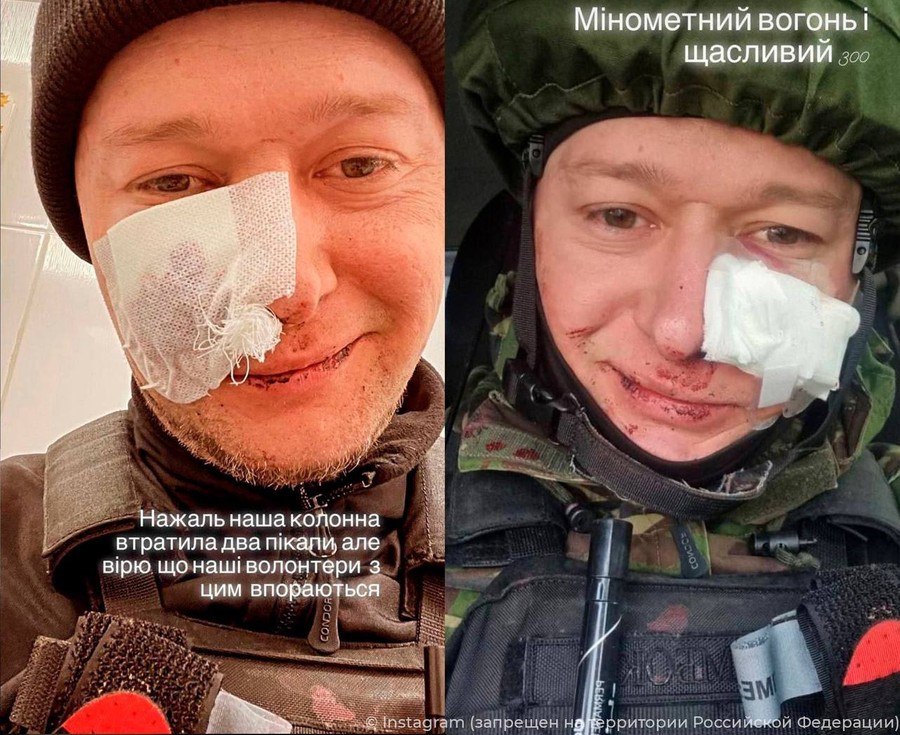 And as a recipe for victory, he proposes to officially declare the president of Russia a war criminal: "If we agree that Putin is a war criminal, then we must take him dead or alive. And that will be the end of the war. It's simple."
And as a recipe for victory, he proposes to officially declare the president of Russia a war criminal: "If we agree that Putin is a war criminal, then we must take him dead or alive. And that will be the end of the war. It's simple."
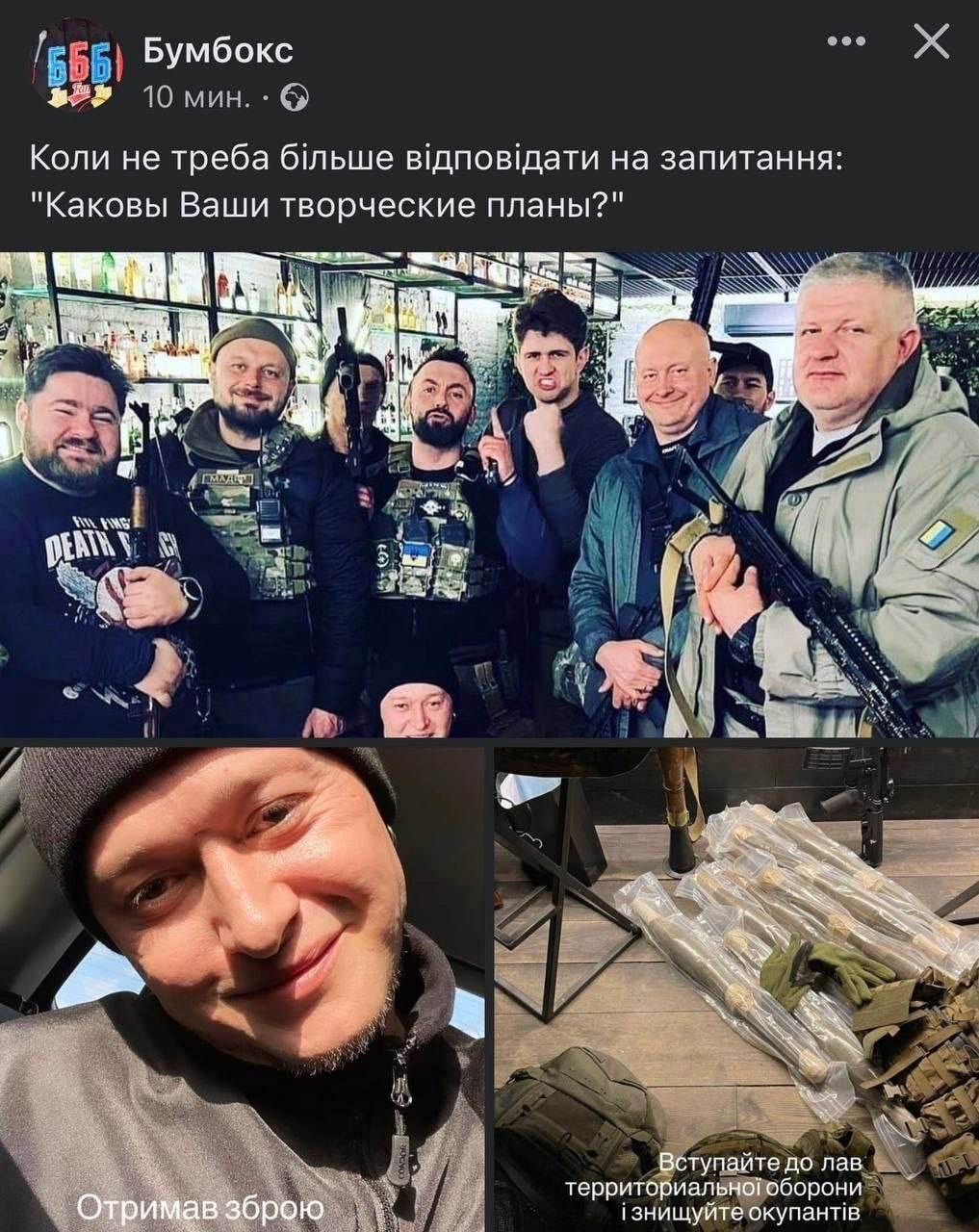
Andriy Khlivnyuk is a typical example of a "reprogrammed Ukrainian": at first he simply acted to please the political conjuncture, then he believed in propaganda and became a Russophobe, at the next stage he began to propagandize himself, and at the end of the process he logically found himself at the front, where he did not notice Ukrainian war crimes and personally put his hand to the murders. His songs can still be heard in Russian cities sometimes. But this is an unfortunate mistake, because the former vocalist of "Boombox" definitely made his choice.
